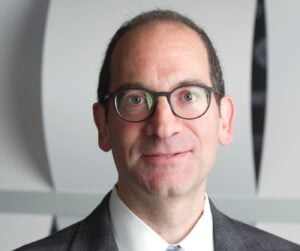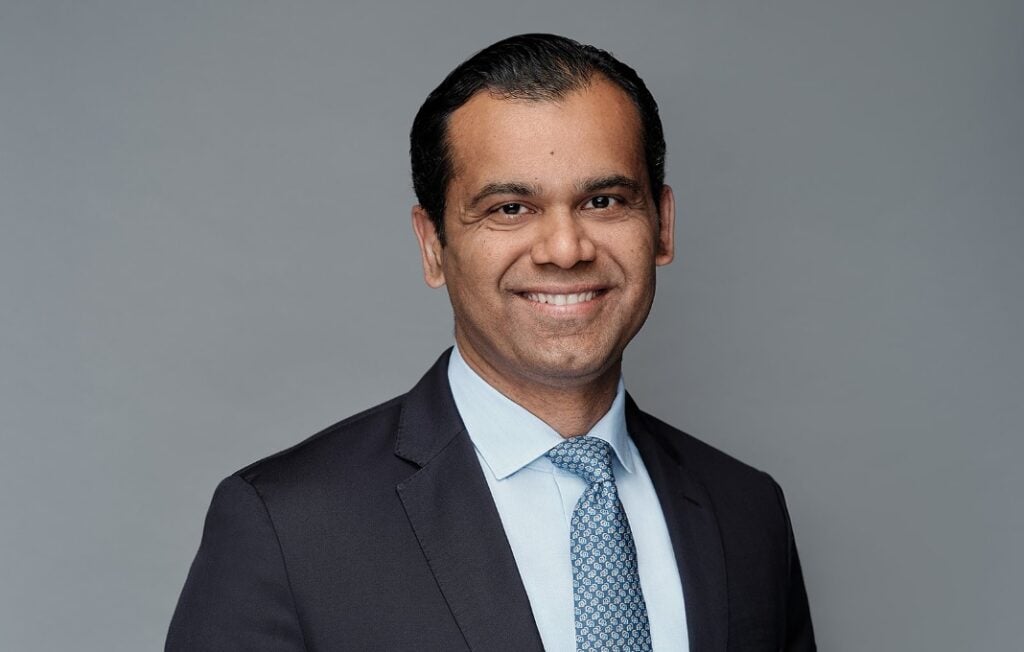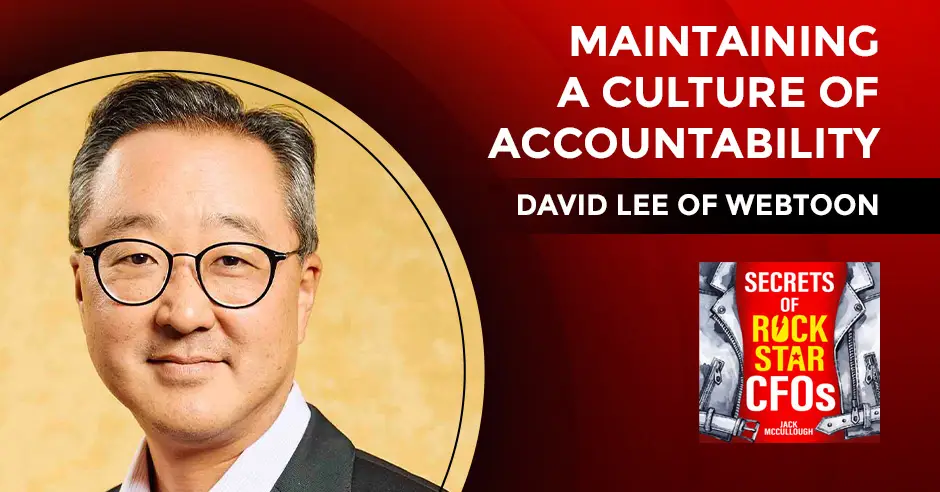Patrick Renna has held the CFO position seven times, nearly all in the food service industry. Perhaps that’s not particularly surprising for someone who bused tables and washed dishes as a teenager at his family’s restaurant. What is interesting is Renna’s promotion from finance chief to chief executive—twice.
Although most new chief executive officers come from outside the organization, for a CFO , the top of the corporate ladder is increasingly within reach. Sixteen percent of CFOs transitioned to become CEO among the top 630 listed companies in Europe in 2024, compared with 15 percent in 2023, according to search firm Spencer Stuart. In the U.S., 13 percent of new S&P 1500 CEOs came from the CFO role in 2024, compared with 5 percent in 2023.
As the strategic, financial and operational knowledge and expertise between the two jobs increasingly narrows, finance chiefs are in a commanding position internally to succeed their CEO. “Nowadays, the CFO and CEO work so closely together to ensure strategy and planning match up with financial capabilities that boards feel very comfortable with the CFO stepping in,” Renna, currently CFO of Proof of the Pudding, told CFO Leadership.
That comfort is evident in the number of well-known companies with CEOs who were formerly CFO, including Hershey CEO Kirk Tanner, Oracle CEO Safra Catz, Siemens CEO Sunil Mathur and Hertz CEO Stephen M. Scheer.
Job Requirements
What skills and experiences put those CFOs on track to assume the chief executive role when given a chance? Not necessarily the default skills required to be a finance chief, according to experts.
CEO-worthy candidates have a strategic mindset first and foremost. Operational experience is a plus, and problem-solving traits and deep-rooted self-assurance are essential, according to research by Deloitte. Softer skills, such as the ability to listen and communicate well, in addition to an innate curiosity and modesty, are also critical.
Benjamin Finzi, CEO practice leader at Deloitte, adds one other attribute to the list—the mental make-up to lead an organization through extraordinary uncertainty.
“The responsibility of the CEO has always been to deliver on the current vision, but this must now be effected in a world where the future is increasingly less defined,” Finzi says.

5 Insights for CFOs Seeking the CEO Seat
Especially during times of economic volatility, companies tend to prioritize continuity and institutional knowledge.
The Strategic Mindset
The road to becoming CEO is different for every CFO. Unexpected opportunities often arise.
Renna, whose early career included an accounting manager at Bertucci’s, a Boston-based fast-casual Italian restaurant chain, “liked the accounting side of things and never thought about becoming a CFO,” let alone a CEO.

Instead, the role chose him. In 2009, after the CFO of burrito chain Boloco left abruptly, the Boston-based company hired Renna as interim finance chief. Five years later, Renna was named CFO and, for a time, added the COO title, through which he gained valuable operational experience.
“I was getting out to the restaurants to meet people inside the four walls to understand what was happening at the ground level, becoming a visible leader versus sitting at a desk,” says Renna. “I also began to work side-by-side with the CEO in developing the strategy for the future.” When Boloco’s founder and chief executive, John Pepper, stepped down in 2014, Renna became CEO.
His second CEO stint at Wahlburgers came four years later. Renna was CFO of the burger restaurant chain owned by actor Mark Wahlberg and his brothers, but stepped into an interim CEO role when the company launched a search for an outside leader. “As CFO, I felt the business needed an outside CEO and agreed to the interim spot until we found one,” he says.
“It’s lonely at the top. You’re the one everyone is looking at, something I didn’t realize until I got there.”—Patrick Renna
Renna’s advice to CFOs aspiring to become CEOs is to develop a strategic mindset and to cultivate an analytical way of thinking about future goals. “Try to think big and longer term, beyond today and tomorrow, to what the business will look like in three to five years. Be curious,” he says.
Time spent in the trenches listening to employees is vital for understanding and helping shape the operational aspects of the business, he adds. “You get to appreciate the work everyone does for the business, encouraging them to be their own leaders while coaching them with feedback,” he says.
His stints as CEO also taught Renna that decision-making fortitude is a crucial proficiency to develop. “It’s lonely at the top. You’re the one everyone is looking at, something I didn’t realize until I got there,” he says. “I worried about the impact of my decisions. A board member helped me realize that leaders must be decisive. Whether your decision is right or wrong, you have to own it.”
Empowering Everyone
Steve Horowitz’s journey to the top of CareCentrix, a 1,700-employee provider of in-home care services, began as a controller in the healthcare sector. He joined CareCentrix as its finance chief in 2012, rising to become CEO in 2022.
Like Renna, Horowitz had no expectations of becoming a chief executive.
“It was not something on my radar,” Horowitz says. “I’m pretty introverted in general, and seeing the way good CEOs I’ve worked with over the years spent so much time managing the board, employees, sales prospects and investors, I didn’t know if I wanted to do all that.”
After transitioning from CFO to CEO, Horowitz adopted a leadership model focused on empowering everyone in the organization to excel in their roles and fostering more effective cross-functional collaboration. Each week, he has a series of one-on-one conversations with people across the company’s value chain. He asks if any roadblocks are impeding their work and what he can do to remove them. “All it takes sometimes is to get people to speak openly and frankly,” he says.

Horowitz has also learned to be more conscious of his comments in group meetings and to limit them to a bare minimum. “I realized that as soon as I weigh in with my opinion on something at hand, it changes how everyone else in the room thinks,” he says. “I intentionally let them go first and offer an opinion based on what I’ve heard. At the outset of a meeting, I don’t speak much at all.”
That approach is something Horowitz learned during his time as finance chief. “I made this pivot where I began thinking more broadly and strategically and decided not to be the typical CFO who always said `No,’ shooting down others’ opinions,” he explains.
The impact was instant, according to Horowitz. “When I did say something, they listened. People opened up. I was the same person, but I felt powerful. Once I realized this and became CEO, I thought, “How can I harness it to help take the organization where it needs to go?”
“When I did say something, they listened. People opened up. I was the same person, but I felt powerful.”—Steve Horowitz
To map the organization’s path, Horowitz needed the board’s support. His predecessor gave him valuable advice on how to handle his first board meeting as CEO. “He said to do it my way, not the way he did it, to be authentically me,” Horowitz says. “`You don’t have to be Jack Welch. You have to be Steve Horowitz,’ he said. It resonated with me.”
Every company needs a CEO whose leadership attributes seem purpose-built for the times, Horowitz says. “Tesla would be so different without Elon Musk’s personality, energy and ability to make people believe in his vision, but a lot of companies aren’t like that. Charisma alone doesn’t guarantee success,” he says. “Sometimes you need more substance than flash, though there are times when flash is better.”
Succession Issues
Even CFOs ready to take on the responsibility of being CEO can run into obstacles. A promotion to CEO can be delayed or missed due to the lack of a clear successor in finance. The pipeline feeding finance chiefs to the top leadership role is slowing due to gaps in the skills development of finance staff, say search firms.
“Not enough controllers and vice presidents of finance are prepared to step into the shoes of the CFO,” says George Pentaris, market vice president of Ledgent, a division at Roth Staffing Companies. “As finance chiefs are promoted or retire, the talent behind them to backfill the role is falling behind.”
He attributed the slowdown to a growing gap between the evolving skills of a modern CFO and the traditional focus of a controller or vice president of finance. The latter roles typically involve cash flow management, accounting, financial analysis, compliance and cost controls, responsibilities that are important but fall short of the strategic skills needed by a CFO.
“Developing the next wave of CFOs to become CEOs requires continuous professional development of controllers and VPs of finance, providing opportunities that encourage leadership, strategic thinking, communications and risk management,” Pentaris says.
But the dearth of CFO-ready controllers and vice presidents of finance has paved the way for alternative paths to the CFO role, says Steve Gallucci, Deloitte’s CFO practice leader. “It used to be an accountant and now it’s someone with either a finance, technology or investment banking background or a collective career experience, where CFO upskilling is a product of the opportunities they’ve been given.”
The Critical Ingredients
What do boards of directors and search firms consider the most essential skill needed to be a chief executive?
“The ability to inspire and motivate people, based on the human elements and not data in a spreadsheet, is what many companies look for in a CFO to become their CEO,” says Ledgent’s Pentaris. “A finance chief taking that next step needs to shift from relying exclusively on market data to listening to the insights and critical perspectives of their staff and others in the organization.”
Deloitte’s Finzi believes that the critical ingredient is curiosity. “It’s not what a CFO has studied or learned that companies need today to lead the business; it’s the beginner’s mindset they bring to learning,” he explains. “The situation a new CEO will encounter in a world where knowledge is accumulated so fast [and] is so uncertain—someone leading purely on what they know will not have a lot of answers.”
Instead, the right leader, he says, “is the one who comes into the role with questions that stimulate critical thinking.”
Aspiring CEOs also need integrity, optimism and confidence, Finzi says. “Those qualities may sound like they’re soft, but they’re attributes of steel,” he says. “Integrity is what gives a CEO the right to be optimistic and confident in the face of continuous uncertainty, to do something good enough that’s better than doing nothing, which can be the fate of other CEOs overwhelmed by ambiguity and indecision.”
Is the modern finance chief ready to be this leader? “If a CFO is already curious, has an open mindset and knows how to listen, the answer is yes. My advice is to do the same, more. It’s just a bigger job,” Finzi says.
That may sound like an oversimplification. But the functional divide between chief executive and finance chief has narrowed. “Titles have never enamored me,” Renna says. “Whether you’re the CEO or the CFO, you take the blame if the company isn’t performing well or your decisions aren’t working out the way you hoped. It’s called the `executive leadership team’ for a reason.”








